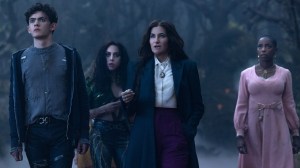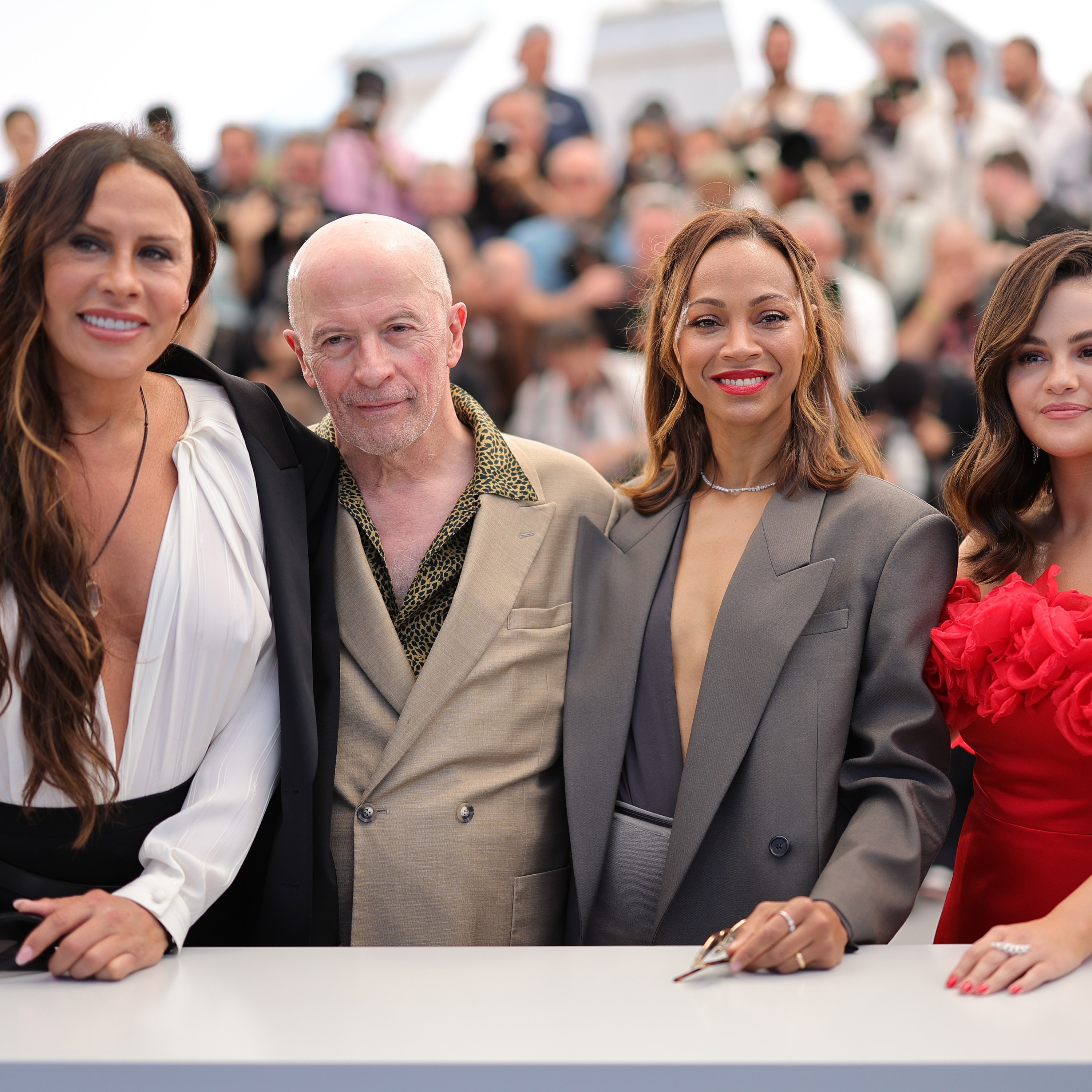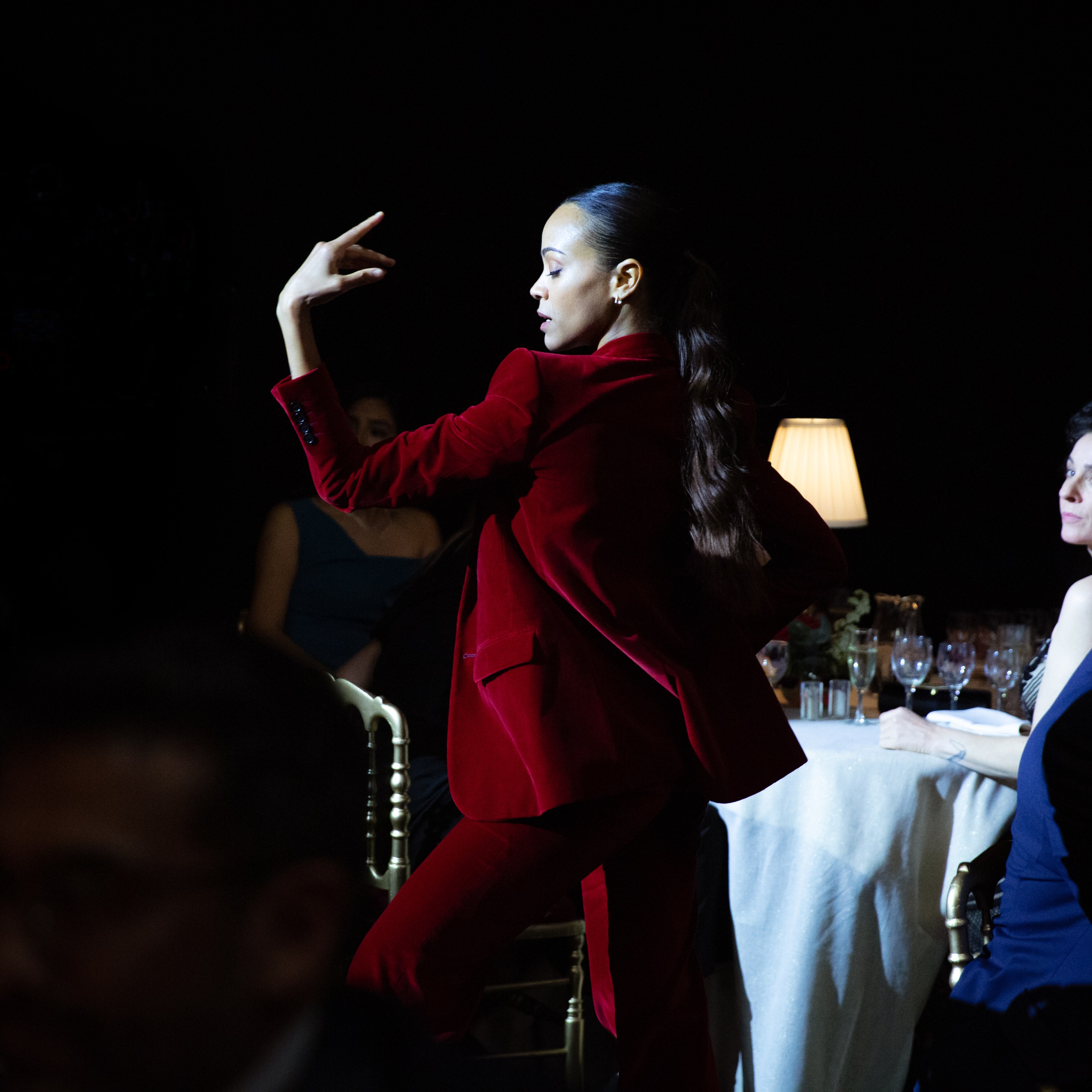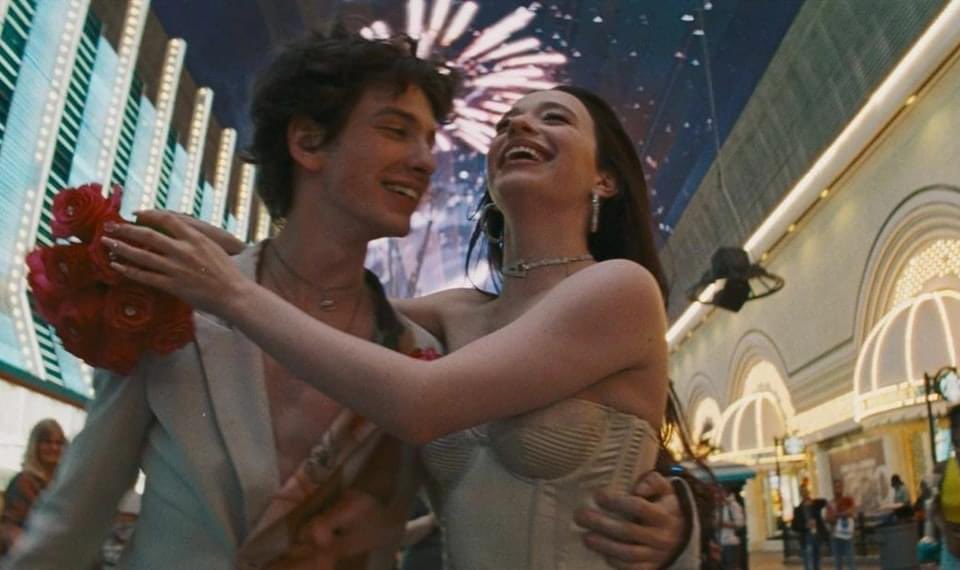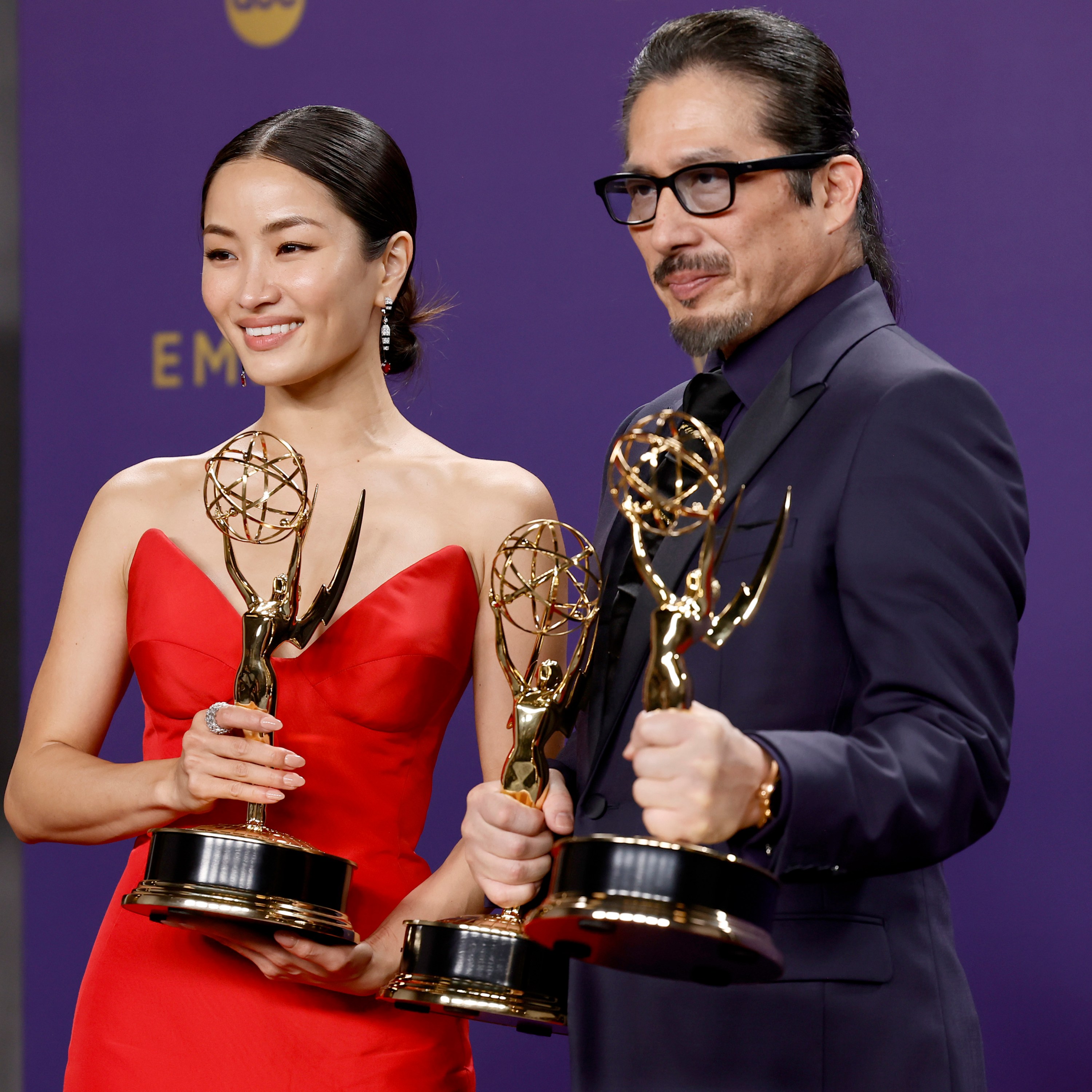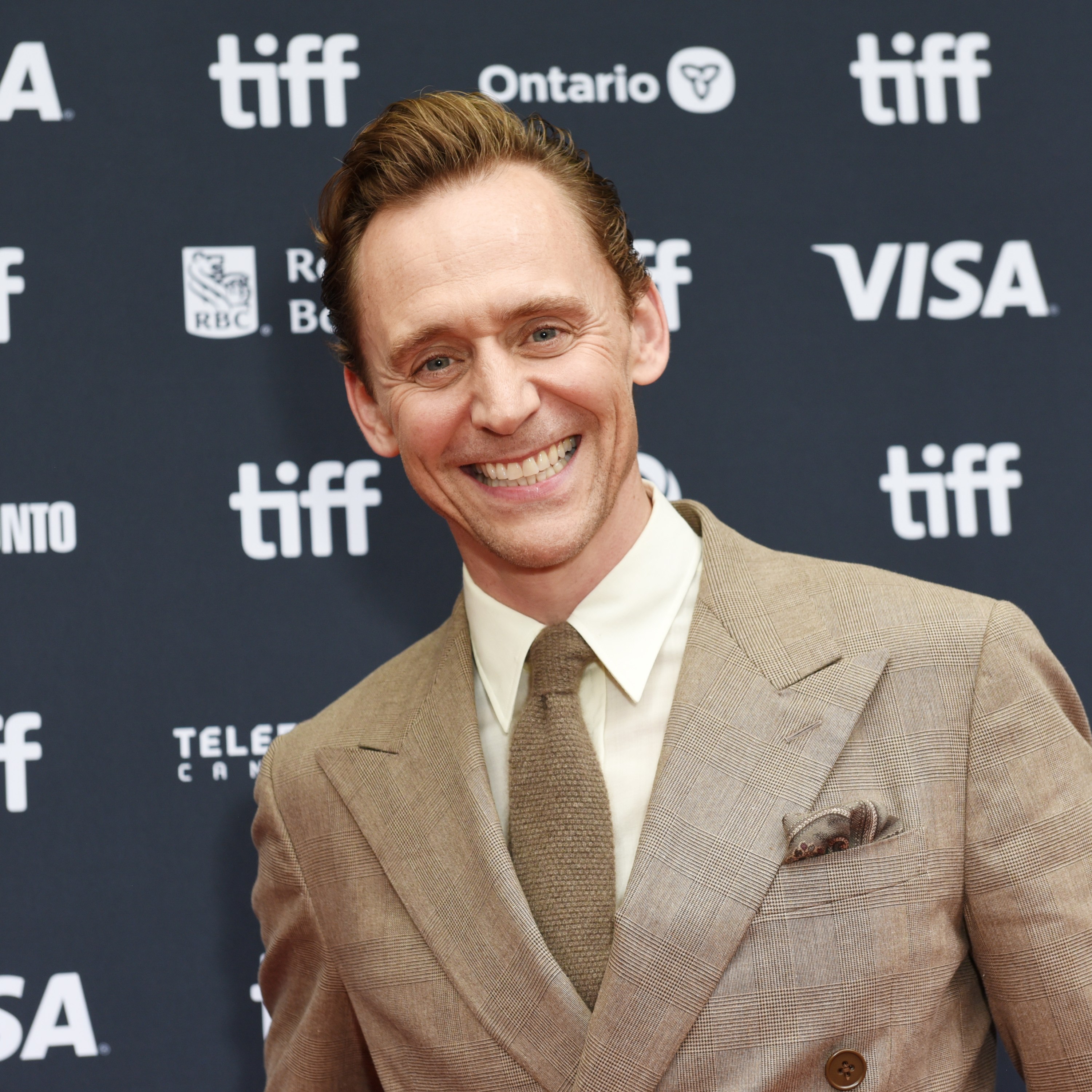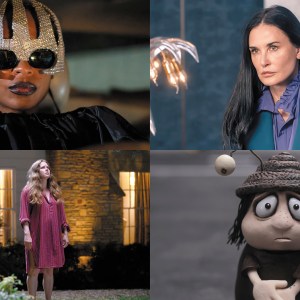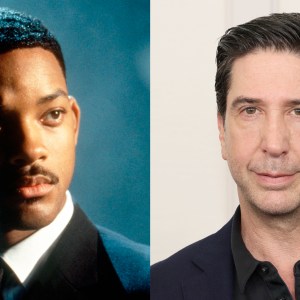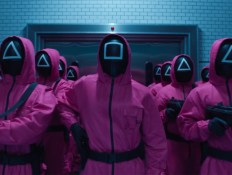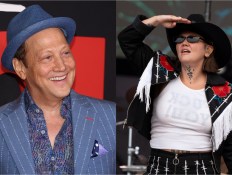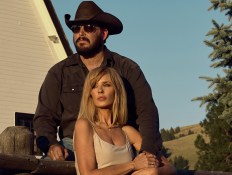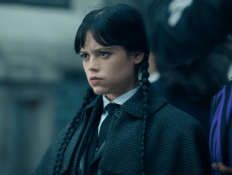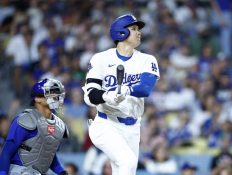By providing your information, you agree to our Terms of Use and our Privacy Policy. We use vendors that may also process your information to help provide our services. This site is protected by reCAPTCHA Enterprise and the Google Privacy Policy and Terms of Service apply.
How One ‘Reservation Dogs’ Scene Helped D’Pharaoh Woon-A-Tai Reconnect with His Grandfather
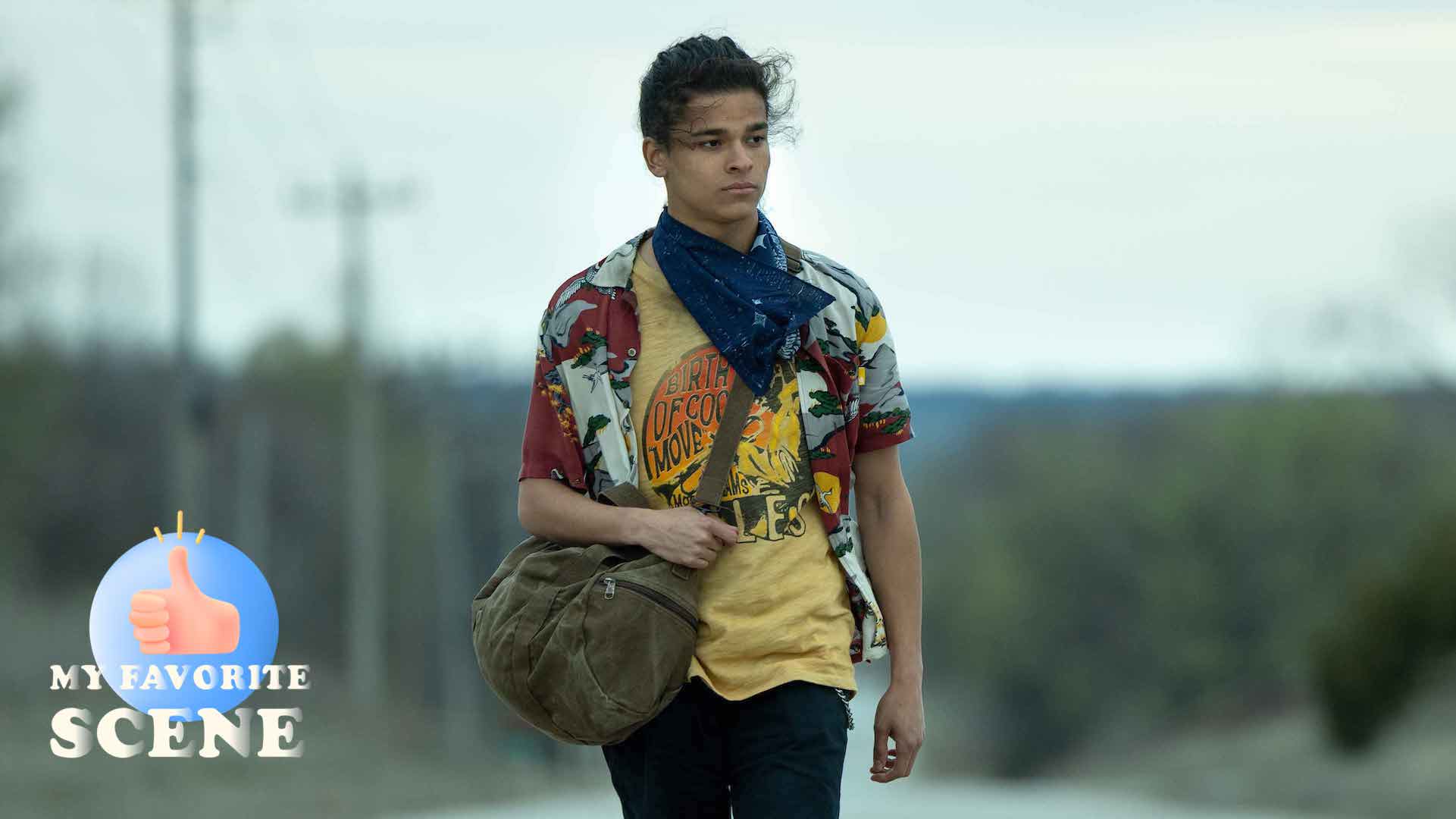

Welcome to My Favorite Scene! In this series, IndieWire speaks to actors behind a few of our favorite television performances about their personal-best onscreen moment and how it came together.
It’s been a year since the final season of “Reservation Dogs” premiered on FX, and even longer since the cast and crew worked on Sterlin Harjo’s FX series, but the show’s impact lingers and won’t soon be forgotten. Case in point: the welcome surprise of an Emmy nomination for 22-year-old D’Pharaoh Woon-A-Tai, who plays Bear and has a weighty arc in Season 3.
“I’m very honored and very grateful for it,” Woon-A-Tai told IndieWire. “I was very honored for every single time we’ve been nominated for every award in the past, but to have recognition from the Emmys finally is a great feeling.”
Season 3, Episode 2 finds Bear wandering the desert alone until he’s captured by a mysterious figure that turns out to be Maximus (Graham Greene) — an elder from his own home of Okern who now lives a paranoid, secluded life out West. At first, Bear is terrified — in his defense, he’s tied up and blindfolded — but at night, he and Maximus look up at the stars together.
“Why did they create us?” Bear asks, when Maximus tells him they are just “energy manifest.”
“To prove a point, I guess,” Maximus says. “That we could still love, through it all. Life’s tough. We should be proud that we can still love.”
When Maximus goes back inside, Bear turns to run away — but then something draws him back. He looks at the old man through the window and decides to stay; during that wordless moment, Woon-A-Tai said that he was thinking of his grandfather, connecting with a loved one despite the time and distance, just like Maximus says.
“As Bear, I was thinking like ‘Damn, this guy is crazy,'” he recalled. “As D’Pharaoh, I was seeing not a crazy guy at that point, and that’s what Bear would have seen. I was also seeing very much my grandfather, and that was nice to have. That’s honestly why I picked that scene, specifically, because it was very nice to, in a sense, see him again.”
Below, Woon-A-Tai unpacks a striking scene in a season that’s full of them, the layers behind his performance, and working with the “amazing, legendary” Greene.
This interview has been edited for length and clarity.
IndieWire: Honestly, I was kind of stressed when I asked you for your favorite scene, because there’s so many good ones to pick from this season. So broad strokes, why this scene?
D’Pharaoh Woon-A-Tai: It was a really important moment in Bear’s arc, trying to become a man and see himself as a good person. That was the two big issues that Bear had throughout the seasons: how to become a man without a father figure and without a positive father figure… and also, “Am I a good person?” which we see in the “Deer Lady” episode. Deer Lady is known in many Native American communities as harming and killing bad men, so when she interacted with him, it was more Bear wondering if all the bad things I’ve done, like steal the steal the chip truck and leave my best friend behind — he felt very responsible for his best friend’s death and stuff like that.
The whole time, it kind of feels like he’s being kidnapped by Graham — I use the term kidnap is because Maximus thought that Bear was working for the government, trying to spy on him, but when he realized that he was just a kid from literally the same area that he’s from, he kind of just said, “Okay, well, you can go if you want.” But Graham has a very deep conversation with him, and as they look up at the stars, he walks away, giving Bear a chance really to leave. As Bear was about to leave… At first he’s seeing a crazy old guy, somebody who he was possibly going to get hurt by, but then when he looked through that window, he’s seeing what was really there, which is just an old Native American guy living by himself in the middle of nowhere with no family or connection back to home. Through how Bear has been treating Daniel’s death (Dalton Cramer), he could see himself be that down the line, he could see himself as Maximus. That’s how I was trying to approach it. This was the moment that it was a change from seeing him as crazy to seeing him as just what he is, and also to see himself in there and where he could be going if he keeps on rejecting his community, like Maximus did.
Especially at the top of the season, there’s so much of Bear alone, so I do feel like that parallel really comes through very strongly.
Season 1 and 2, Bear definitely had William Knifeman (Dallas Goldtooth) by his side, giving him advice if he wanted it or not. But Season 3 was was beautiful because William Knifeman and didn’t show up in like, half the season. You could tell that Bear needed his advice the most at that time, and he was going through one of the most important chapters in his life to figure it out. That’s what’s beautiful, both about our community, but what the show wrote about it, which was that earlier in the series William Knifeman says you got to get up and learn it yourself. That was very much what he left Bear to do in Season 3. Through all of that, through “Deer Lady,” or through the Maximus episode, Bear’s by himself.
Bear really went through it this season, I gotta say.
Yeah, he did. But I think those were important. The questions that he had for a while and what he needed to be who he is — he needed to go through that. And doing that brought people together. Throughout the whole series, he’s just been rejecting his community and trying to run away from it, but in Season 3 he, without even really knowing, brings community members together, bringing Maximus back and trying to break him out and bring him back to his old friends.
Going back to the beginning, literally on the page, do you remember what your reaction was to these scenes when you initially saw it?
I didn’t know where the season was gonna go for any of the seasons. Originally we thought that what we were shooting on Season 1 was just gonna be a limited series. For this season, Sterlin and the writers told me that Bear will have a few solo episodes and really dive into his arc, which I was excited for because Bear needed to get a good ending. He’s definitely dealt with a lot through all the seasons. Reading the script, the Maximus episode, when I first read it I was like, “God, damn.” As soon as it says that Bear got taken, shot in the neck by the little arrow, and then he falls. I was like, “WHAT?! Is he being kidnapped right now, what is this?” And then reading it, reading the dialogue — without even meeting Graham Greene prior and working on the episode — I knew that it was a very [pivotal] moment.
So you hadn’t met Graham. Did you get to rehearse together at all?
Yes, we did. Graham Greene is a very amazing actor, and he’s been in the game for a while. I asked him about projects that I watched when I was younger, that he was in, and he had no idea what I was talking about, because he’s been in a lot of movies. He knows his craft, and very well, so to be able to work with him was very much an honor. We got to work together, learn the lines, run them over — we got really close with each other.
What did you develop in rehearsing that scene and kind of building it out from what you were originally given?
Nothing, really. Straight up, Graham, just attacked the project with this elder, old, crazy mentality, and it was in the scripts. It was in the lines. He did it how it was, and he brought those words to life. To collab and change on the script was not really needed, and that’s what I say with a lot of the scripts. They let us riff and they let us improv when we feel like it needs to be said or heard or put onto the screen. But besides that, the writers are just great writers, where a lot of times it doesn’t even feel like I need to improv or change anything.
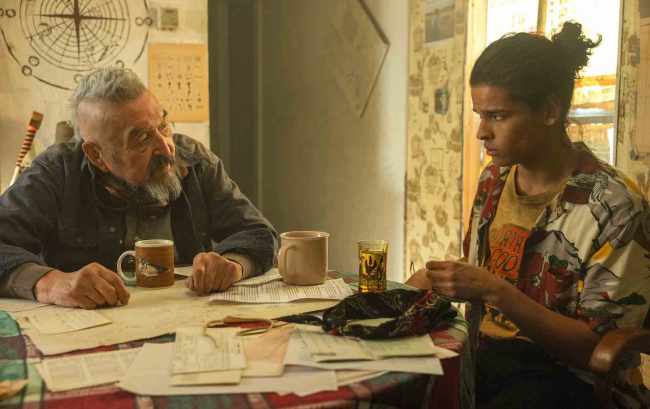
Did it feel even more cohesive to have Tazbah Chavez both writing and directing? Did she have any specific notes about how to perform it once you got to set?
Tazbah is an amazing director. She’s a very close friend too. To be able to work with both a great director and a great writer and to work with a legendary actor was just a dream come true. As me, D’Pharaoh, I definitely needed that for my career in the sense of learning from both of them. But it was an easy shoot. We had a lot of fun doing it. There was not too many changes from the script to the screen.
We talked about Bear being separated from the rest of the Rez dogs for a lot of the season and here specifically — what was that like for you as an actor? It’s got to be intimidating at first, to be taken away from your built-in support group.
Yes. Like, damn, I love acting, and I love my craft, and I think I’m the best at it, so it’s very nice to have a lot of people you can rely and not to have the whole episode on your shoulders. But I knew that was gonna happen because we all did it. That was beautiful about the whole series and having it for three seasons, which was that every character, or at least every main character, got their arc and their story and their solo episode and their standalone. There’s definitely a lot of weight on your shoulders for any projects, not just alone or for “Reservation Dogs,” to be the only one in the episode, or to have it just be focused on you the whole time. But I was working with great talent, and I was working with a great actor who very much showed me his routine and his techniques, and I’ve been applying it ever since.
They say that good acting is reacting, and this is a scene very heavy on reacting. Can you talk a little bit about that?
I agree with you. I very much think acting is reacting, and hopefully I reacted good. [Greene] would randomly change it up a little bit, maybe add in a line or two, or say something different, or do something different. It kind of threw me off guard in the sense of I just wasn’t expecting it, but after the first take when he did that, I was like, okay, I kind of get a sense of how he is, so I’m just gonna be prepared. I never worked with such a legendary actor prior, and someone who’s been in the industry for many generations — before I was even born. It was interesting, and I learned a lot from him.
You guys don’t do a ton of nights, and it’s outdoors too, were there any challenges from the setting?
Oklahoma doesn’t get that crazy cold. The majority of the times, Bear just wore, like, layers of T-shirts and flannels, so it was more that I was hot. Especially in Season 1, when we shot in August and it was just blazing hot in Oklahoma. It’s like the hottest sun I’ve ever experienced, and Bear just has like two shirts on and a flannel over it. God damn. It was honestly very easygoing this episode. Nothing crazy — nothing really crazy ever like that on “Reservation Dogs.” A lot of times there were tornado warnings, and we’d have to not shoot, but they’re so used to that it’s crazy. They’ll just be chilling outside where they get tornado warnings and try to see if they can see one.
The final turn in the scene, you do such a good job of this just with your face. There’s no dialogue when Bear looks like he’s gonna run away and then decides to stay. Talk me through what went into that.
Graham Greene’s from the same area that I’m from. I was born and raised in Toronto, and he’s from a reservation called Six Nations that’s just like an hour and a half, two hours away from Toronto. We’re such diverse communities that we look extremely different from each other, just in North America alone — there’s over 300 tribes just in Canada and the United States — so to work with somebody who’s from the same area than I am, it was very refreshing to see a familiar face. My grandfather reminded me of Graham Greene. It was very nice to work with him and talk to him, because it just felt like I was talking with my grandfather again.
That makes me reframe and want to watch it again, because of the conversation that they have before that, which is so heartfelt, and which is really about loved ones and loss.
Yes, exactly. And in that moment Bear is just seeing himself, and where he could have gone. There was no dialogue, it’s not like Bear said something, and you have to very much do it off emotion. I just went into the zone of seeing my grandfather, and that was kind of my real reaction that you see.
Thank you for sharing that, I know that’s also a very personal thing to bring to it.
Yeah but that’s what I did, so shit! That’s what happened.
And then he ended up being even more part of the show as we get towards the finale. Did working with him one-on-one help to inform the later scenes you had together?
Yes. We all got to work with legendary actors on our solo episode, and not all of us got to interact with those legendary actors. Yes, I had some scenes with Wes Studi, but Lane Factor really soloed an episode with him. So a lot of us know how they are, and the rest of us don’t because we haven’t worked with them yet. Having them all together was crazy — all these legendary Native actors, their work I’ve been seeing since when I was a child, my father when he was a kid — it’s crazy to have everyone in one room.
And that’s something beautiful that Sterlin wanted to do, which is put legendary actors all in one room, and give us a chance to learn from it. The dynamic in the last episode and the ’70s episode — which are done by amazing actors, every single person who acted on that episode — you see very much the dynamic between the elders and the youth and how they are the same. If you look at the ’70s episode and see the elders where they are now, they were the exact same thing as the Rez dogs, and to grow like they did, and mature like they did, and go down different paths like they did, is something the Rez dogs can learn from. Whether that’s running away from the community, like Bear wanted to and Maximus ended up doing, or staying in the community and staying with each other like Mabel (Geraldine Keams) did and everyone else did.
Is there anything else you would like to add?
It was a very great episode to bring up mental health that a lot of Native American people deal with — people all over the world deal with, but it very much affects us. It’s not talked about or treated as much as it should be in many communities. I don’t think [Maximus] was truly crazy. I do think that he did see what he said he’s seen, which was those aliens, and he also has just mental health issues that get brought up in the in the show — especially in the scene where he gets taken away and he sees aliens, when it’s really just police. I don’t think those are the aliens, but I think he did see something.
It’s been a year since the season came out, but how has “Reservation Dogs” stayed with you since finishing out the show?
It’s definitely changed me person, but also how I approach other projects and specifically Indigenous led content. I think that it’s very important that we are the ones telling our story. I’m not saying that non-Indigenous people can’t help us tell our story, but it’s very important that that director’s chair and that writer’s chair are filled with people of the community. As people of color we need to be telling our own stories and not having [other] people benefit financially and push stereotypes and narratives for us that aren’t true. That’s something that I took from from “Reservation Dogs,” and when moving forward it would be pretty mandatory that that writer or that director who’s telling these native stories are Native American.
“Reservation Dogs” is now streaming on Hulu.
By providing your information, you agree to our Terms of Use and our Privacy Policy. We use vendors that may also process your information to help provide our services. This site is protected by reCAPTCHA Enterprise and the Google Privacy Policy and Terms of Service apply.

